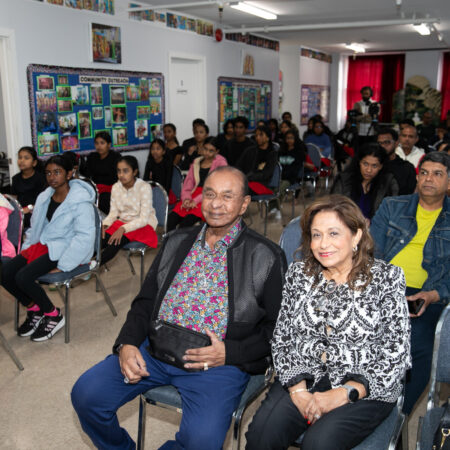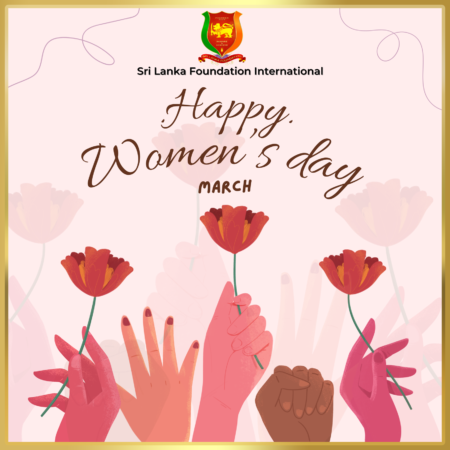by Shannine Daniel
President Maithripala Sirisena and Prime Minister Ranil Wickremesinghe yesterday called for a reinforced and revamped legal system in Sri Lanka to resolve critical national issues, foster reconciliation and strengthen economic growth to take the country towards a prosperous future.
Addressing the 29th LAWASIA Golden Jubilee Conference yesterday at the BMICH both leaders emphasised the importance of a strong legal system to carry forward the ambitious plans of the Government and ensure a fair and peaceful future for Sri Lankans.
President Sirisena was emphatic that in a democratic country the Constitution plays a large role in stabilising the laws that promote democracy, freedom and basic human rights, and noted it is important to strengthen the Constitutional first in order to strengthen these laws. He also underscored the importance of a fresh Constitution to ground critical reconciliation measures being rolled out by the Government.
“Given the incidents that we have faced since last year it is important that the current Government remains unbiased, so that we can go forward with the Constitution and abolish the Executive Presidency in the country,” he stated.
“We have the whole world watching us, especially the United Nations Human Rights Council (UNHRC), and we need to become an example.”
“To show the world we can uphold democracy, freedom and basic human rights. Therefore the LAWASIA conference is imperative in guiding lawmakers and practitioners in strengthening the existing laws and bringing in improved laws to better our society,” he told the gathering.
This is the third LAWASIA Conference to be held in Sri Lanka.
Delivering the keynote speech Prime Minister Ranil Wickremesinghe stated that the legal profession in Sri Lanka has played a vital role in consolidating the role of democracy and in upholding the rule of law.
“When we talk of the courts we often forget two things; one is the close relationship between the Bar Association and the legislature. When the Supreme Courts were upgraded by the Charter of Justice of 1835, positions were also made for lawyers to be accepted by the Supreme Court. Those who were first admitted were also some of the first members of the legislative council that was also established in 1835. ”
Wickremesinghe recalled that at a time when rule of law was being undermined and the judiciary was under threat during the time of the previous Government, the Bar Association and civil society played a significant role in re-establishing the democratic and the legal office.
“It is something inherent in the South Asian system, our commitment to a rule based legal system dates back to the time of the great emperor Asoka. It is our ability to absorb the principles of the British legal system that has allowed our Sri Lankan lawyers to become the other practitioners of the Anglo-Saxon legal system. But we had our own adaptations to it. In fact lawyers have always played a leading role when you consider the political status of modern India where Gandhi, Nehru and Jinna were instrumental in the divisions of states.”
Wickremesinghe noted that the Government had pushed forward the Office of Missing Person’s Bill in parliament as it wanted the legislation enacted before the visit of UN Secretary General Ban ki-moon to Sri Lanka at the end of this month.
“We brought in the Missing Persons Office Bill, which was already stabled in Parliament under our law, and there could have been a challenge to the Constitution of the bill before it was enacted in Parliament.”
“Yet this did not happen even though there were claims that this would put a large number of patriots in jeopardy and there were large number of people who were willing to challenge the VAT bill, no one was willing to challenge the Office of Missing Persons Bill,” he said adding, “the Office of Missing Persons Bill is no reason to call for a witch hunt.”
He defended the legislation, which was passed without a vote in parliament on Thursday and insisted that it would bring closure to thousands of Sinhala families as well as people of the Tamil community.
“Even though the terrorist leaders of the LTTE have been killed, there are a large number of people who have disappeared after the war, journalists and lawyers who were killed. We need to find out the truth about what happened to them and truth leads to reconciliation.”
The Minister of Foreign Affairs and the Minister of Justice have discussed with South African authorities about bringing forward a bill at the end of next year or early next year to establish a Truth and Reconciliation Commission (TRC), the Prime Minister said. The TRC would form one of the pillars of the Government’s reconciliation process as outlined before the UNHRC.
“If anyone needs to prosecute anyone the present law is sufficient because the system itself is straightforward and anytime any observer can come and witness the trial, but the system has not provided the search for the truth and how to bring about consequent reconciliation. This is a new challenge for both the political and the legal system.”
“We have committed ourselves to a new Constitution and there are many issues which have arisen and are being discussed about currently. The role of the courts is being analysed as well as the need for a new Constitutional Courts. These are issues being discussed by the committees appointed by the Constitutional Assembly. Parliament itself passed a resolution to appoint a committee for the whole house; the Constitutional Assembly and we have given it the power to appoint a Steering Committee and the Steering Committee the power to appoint Sub Committees.”
The PM also stated that a separate committee had been appointed to study the Colombo Financial City and a separate jurisdiction within the Supreme Court will be established within the land that is to be allocated as the Government’s share of the Port City because there is demand to operate a financial centre between Singapore and Dubai. The Bar Association will have a vital role in the legislation, he said.
In terms of the Executive Presidency Wickremesinghe also stated that the ultimate power lies with the people and therefore it is important to take into consideration their views and opinions.
“The current president is a symbol of the type of government we have strived to achieve; despite the difficulties that we have faced due to a coalition government we have somehow overcome them and have cooperated to work together.”





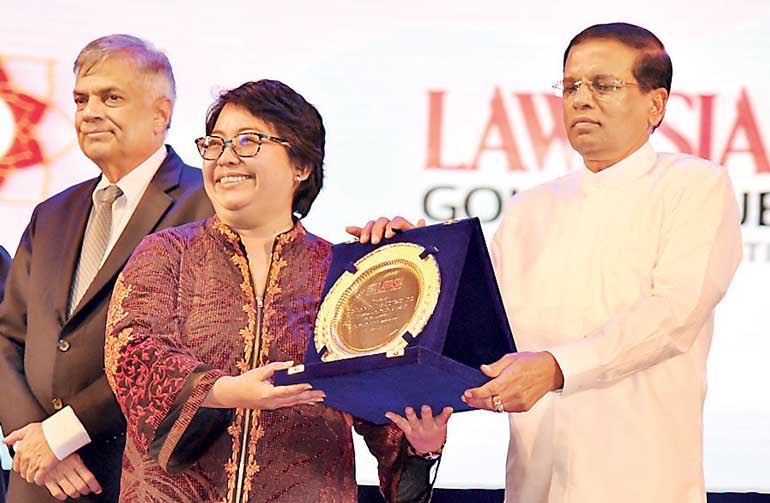
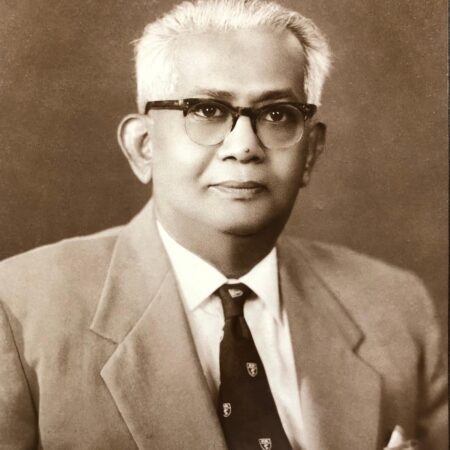
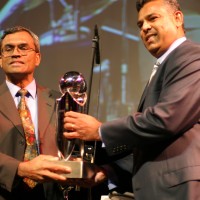



![TV-Poster-All-Exhibition-Sri-Lanka-in-Focus-USA-2025[1]](https://www.srilankafoundation.org/wp-content/uploads/2025/04/TV-Poster-All-Exhibition-Sri-Lanka-in-Focus-USA-20251-450x450.jpg)
